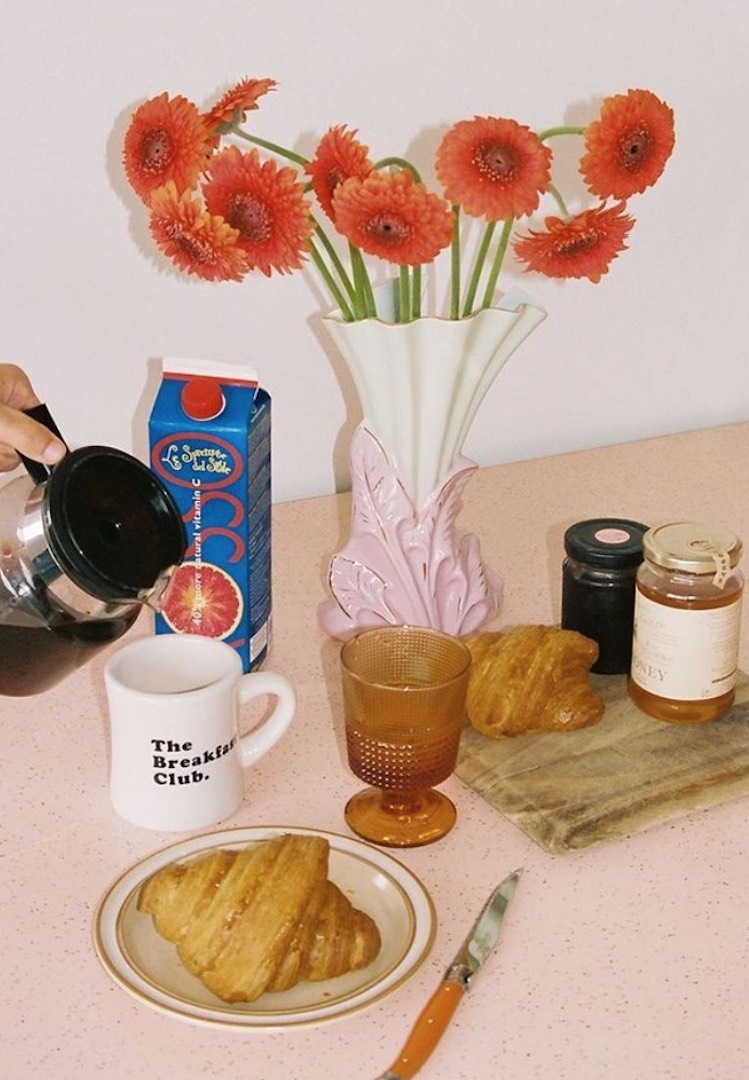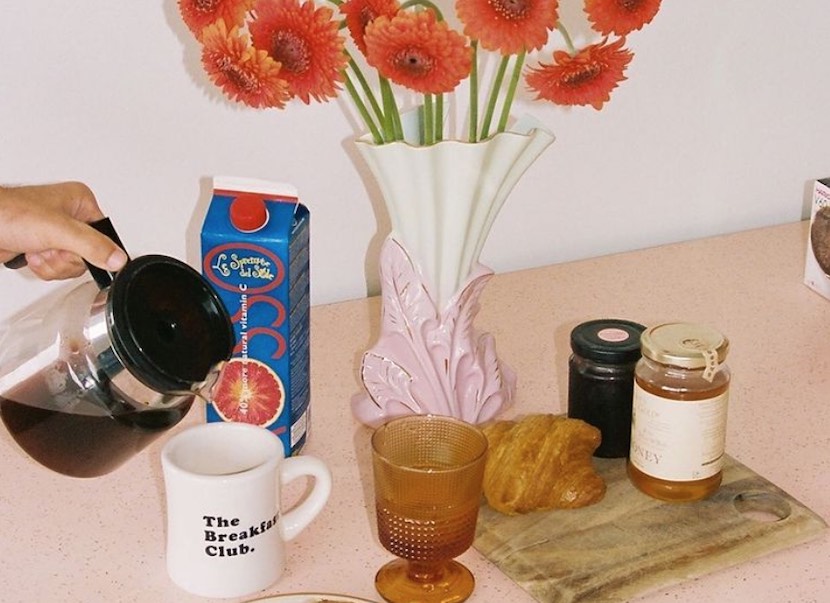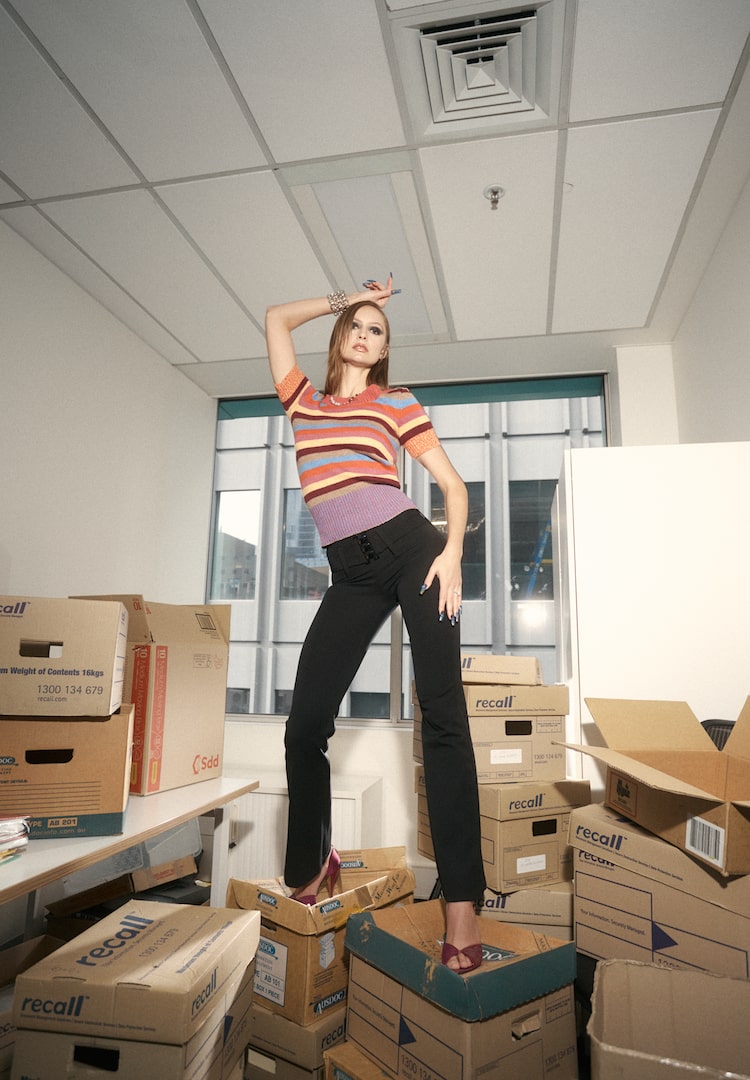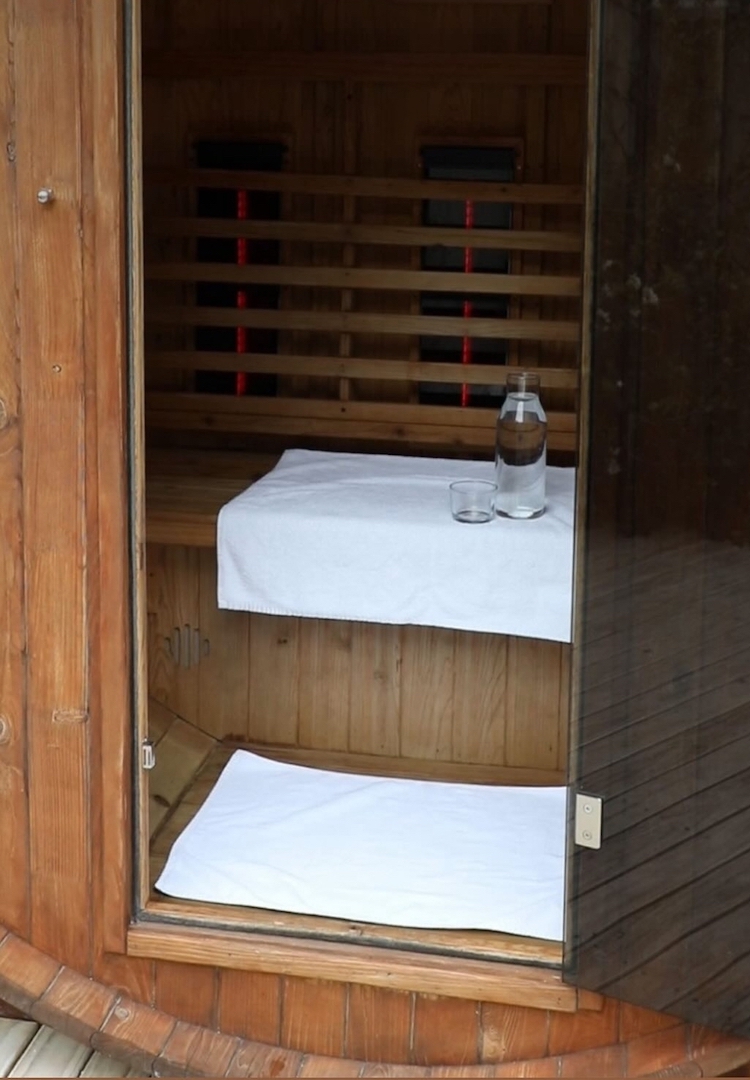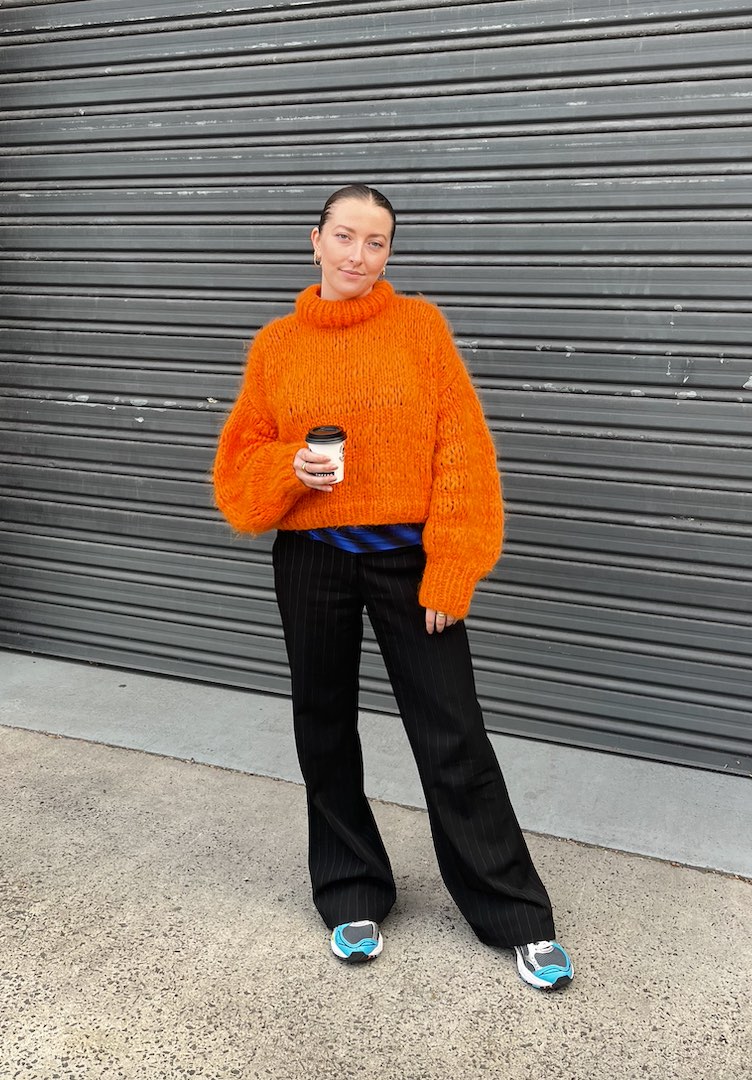Tips from a psychologist on how to look after your mental health during lockdown
image via @thebreakfastclubonline/instagram
WORDS BY HANNAH COHEN
We’ve got this.
For 24/7 crisis support, call Lifeline at 13 11 14.
With more than 60 per cent of Australians in lockdown, it’s no surprise psychologist appointments are in higher demand than ever. On the upside, this spike reflects our growing initiative to reach out for professional assistance when it comes to our mental health (yay!).
But unfortunately, this demand isn’t being met with the necessary supply, leaving a lot of us hanging around in limbo between requesting help and receiving it. Throughout this pandemic, we’ve all been gripped by the doom and gloom of lockdown in one way or another.
Interested to hear how others navigate the world? Head to our Life section.
But for those of us who plucked up the courage to seek help on the mental health side of things, many of us have been left biding our time patiently on the waiting list of a psych we haven’t yet met.
In this time of need, it feels like actually attending that first appointment is near impossible. But, stick with me on this, all hope is not lost. There are other options out there for you to peruse as we grit our teeth through yet another lockdown.
I sat down with the founder of Cope Psychology, counselling psychologist Shantal Lourie, to create a comprehensive list of tips, techniques and accessible resources you can use to take care of your mental health right now.
Whether you’re booked in and not sure what to expect from your first appointment or you’re looking for an app to help you manage those pesky feelings of anxiety, there’s something in here for everyone. Godspeed and happy lockdown my friends.
Lockdown’s got me feeling low. How do I know if it’s worth booking a psychologist appointment?
It’s the question on a lot of people’s lips during this turbulent time: ‘Yes I’m feeling (insert any feelings of worry here) but is it worth seeking professional help? Won’t it pass after lockdown?’ Shantal says it’s important to remember fluctuations in your mood are totally normal, especially while we are navigating our way through a pandemic.
“In terms of when it’s time to get support for it, I think the two big things to look for is how much distress or how much disability it’s causing,” she explains.
“If it is starting to interfere with your ability to function, you might find that you’re preoccupied with a lot of anxiety or depressive related thoughts, maybe it’s hard to focus on your job, it’s hard to sleep… or even if you are able to do a day to day job, but you’re feeling a higher level of distress than what you ordinarily would, then it might be a good idea to book an appointment.”
To do this, there are a few different routes we can venture down. First things first though, Shantal says if you’re not too sure of where to go, a great place to start is with your GP. By beginning here, you’ll be able to save some cash.
“They can create a mental health care plan and referral letter and with that, you’re eligible for Medicare rebate. So if you don’t have a GP referral letter or mental health care plan, you won’t be able to get a rebate,” Shantal says. “The GP will be able to look up on the database [and tell you] which psychologists are in the area and make a referral.”
If you’re a little more choosy and you’d like to conduct your own research, there are a few different platforms available where you can filter your search to your location and the kind of support you’re after from a psychologist.
For this option, Shantal recommends checking out the Australian Psychologist Society and Psychology Today where you can use their search engines to check out a range of different psychologists to best suit your needs. Looking for a little more guidance in your search? Your GP will always be able to recommend a tailored list of options for you to suss.
I’m on a psychologist’s waiting list. What can I expect going into my first appointment?
Be prepared for a whole lot of information gathering. The first appointment is all about the client and the psychologist getting to know each other. Shantal says to expect to be asked a bit about your background, your goals and what might have brought you to the appointment in the first place.
“You’ll be talking through the counselling process, how many sessions you might want or need, how they might work, [and] they might give you an opportunity to ask some questions that you have,” she says.
Shantal warns that it’s not uncommon for people to walk out of their first appointment a little drained because, in her words, “there’s quite a lot of talking”. Don’t let this put you off though – sticking it out is an essential part of the process.
Shantal stresses that although you don’t tend to walk out of your first appointment armed with a wealth of new tools and strategies, it’s important to give each psychologist at least two or three tries to get a good feel of whether their services are right for you.
“It does become a bit easier. The first few sessions are really about getting a good assessment of the individual person and how they think and what’s going to work best. It’s really just building rapport,” she says.
However, if you do feel like after a solid few sessions that you’re just not clicking with your psych in the way you’d hoped, Shantal suggests having an honest chat with them. They’ll usually be more than happy to put you in touch with someone who might be a better fit.
What are some daily practices I can implement to help with my mental health while in lockdown?
Sometimes, a little perspective can go a long way. If you’re experiencing feelings of worry or sadness during lockdown, Shantal suggests stepping back to recognise that you’re probably not alone in feeling down during these uncertain times.
“Firstly, just acknowledge that a lot of people are feeling that way, and acknowledge to yourself that you might be kind of in a state of languishing, which is where you’re not necessarily mentally unwell, but you’re not really given the opportunity to thrive in the way you ordinarily would with so many things impacted by lockdowns… just kind of recognising that it’s okay to be in that state,” she tells me.
Shantal’s number one rule is to be kind to yourself. While setting aside time for daily mood-boosting activities is especially important, she also recommends adjusting your expectations and respecting your energy levels; taking it day-by-day in terms of the self-care tasks you set out to achieve.
“Set yourself tasks or activities that are in line with how you’re feeling. If you’re feeling pretty energetic, you might be able to then implement self-care strategies that require more energy like exercise, going for a walk with a friend or powering through some work if possible. If you’re just feeling quite flat, it might be about reading, meditating, cooking, or doing some of those activities that might not require as much.”
Shantal says it’s all about being flexible with your tasks according to how you feel on each given day. Her favourite self-care pick-me-ups? “Try 15 minutes of stretching or, I know this sounds strange with social distancing, but being able to physically hug someone whether it’s a housemate, or, a partner, a pet… just kind of feeling like you’ve got some contact, it could even be just having a nice pillow or a weighted blanket or something to give you that sense of comfort.”
Her next best tip is giving yourself permission to let it all out. “Allow yourself to feel all the feelings and laugh hysterically and cry hysterically if you need to, and have that release. It’s really important for preventing that buildup of emotions that can happen during this time as well.”
Any helpful resources I can hit up if lockdown is getting me, well, down?
Check out these links if you’re looking for accessible help during lockdown, available right at your fingertips:
Reachout.com: This website features a hub underneath its ‘tools and apps’ section that’s home to a diverse range of professionally reviewed apps and tools to suit your health and wellbeing needs. Whether you’re looking for advice on chatting to a friend who might be struggling or wanting to track your daily moods, Reachout.com’s got an app for it!
Headspace: Headspace is a platform that offers free online counselling services with qualified health professionals. You can either pop into your closest headspace centres for a chat, or if you’re after a more confidential interaction, you’ve got the option to use their online and phone services anonymously.
Sane Australia: Looking for an inclusive, non-judgemental, listening ear that will give you tailored advice on how to access longer-term help with your mental health challenges? Sane Australia provides counselling support to those suffering from complex mental health issues over the phone, webchat or email. Its website also features a peer support forum for you to connect with others who may be going through a similar battle, helping you to feel less alone.
Rainbow Door: Rainbow door is a free service dedicated to the LGBTQIA+ community to the resources needed to look after their mental health. Under its resources section, you can find a list of organisations that cater to caring for the community in the wake of COVID-19.
Beyond Blue Coronavirus Mental Wellbeing Support Services: On this site, you’ll find a range of COVID specific mental health resources, dedicated entirely to arming you with strategies, advice and regularly updated information to help support your mental health during this time. They’ve got tips on how to help manage anxiety, achieving work-life balance while working from home and of course, a phone and online support system so you can talk to a counsellor if you need.
For more COVID specific mental health support, head here.


